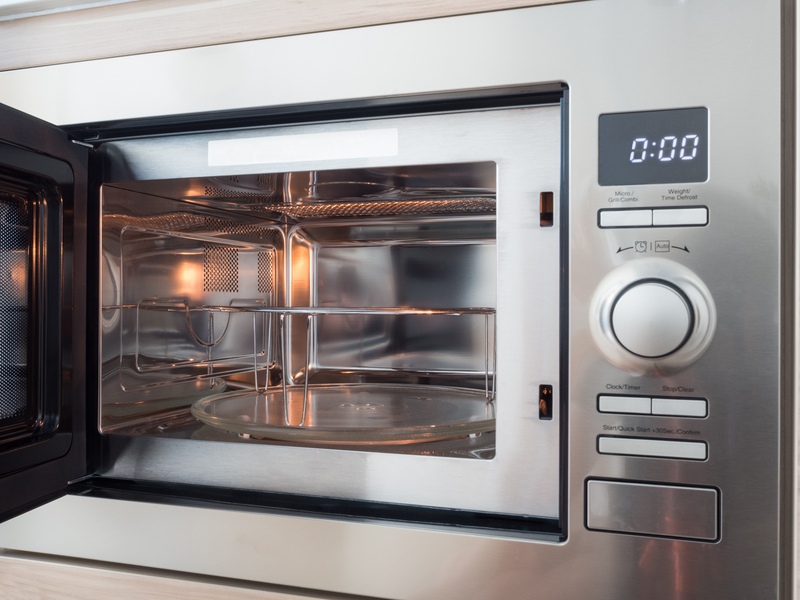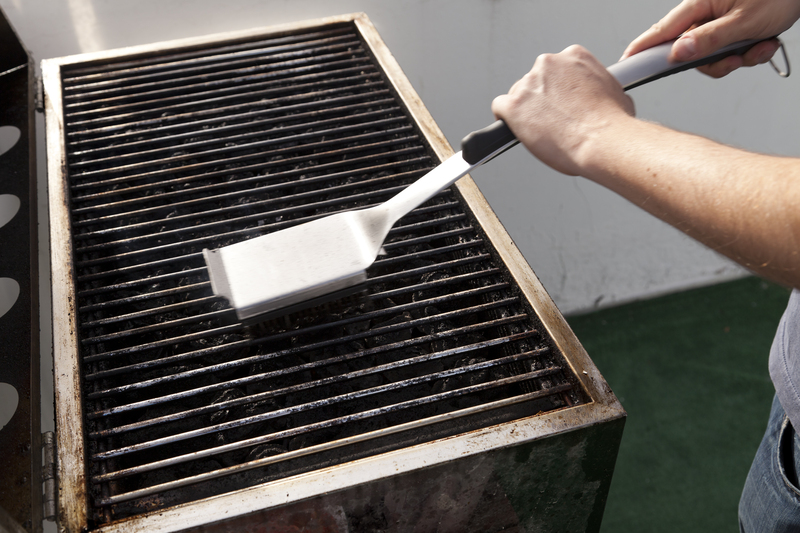Unveiling Expert Jewellery Cleaning Secrets
Posted on 30/09/2025
Unveiling Expert Jewellery Cleaning Secrets: A Comprehensive Guide
Jewellery is more than adornment--it is a reflection of personality, milestones, and cherished memories. Over time, even the most exquisite pieces can lose their lustre due to everyday wear, exposure to lotions, and environmental pollutants. Unveiling expert jewellery cleaning secrets will help you keep your treasures sparkling and timeless, whether you're caring for precious family heirlooms or your favourite statement necklaces.

Why Proper Jewellery Cleaning Matters
Jewellery cleaning isn't merely an aesthetic pursuit. Routine cleaning and maintenance help to:
- Preserve brilliance: Dirt, oils, and residues dull gemstones and metal settings, reducing their shine.
- Protect structural integrity: Buildup can loosen prongs and settings, risking loss of stones.
- Enhance value: Clean, sparkling jewellery not only looks better but also appraises higher.
- Maintain hygiene: Bacteria can accumulate on rings, especially those worn daily.
*Unveiling expert jewellery cleaning methods* provides both beauty and longevity to your collection.
Understanding Different Jewellery Materials
Each piece of jewellery is as unique as the materials from which it is made. Before you start cleaning, it's essential to understand the intricacies of different materials, which require specialized care.
Gold and Platinum Jewellery
- Gold is soft and malleable--avoid harsh abrasives that can scratch its surface.
- Platinum is denser and more resilient but can also develop a patina, so gentle polishing is advised.
Silver Jewellery
- Silver tarnishes easily from air exposure. Regular cleaning prevents unsightly blackened surfaces.
- Use specialized silver-cleaning cloths or solutions to restore its radiance.
Gemstone Jewellery
Each gemstone possesses distinct properties. For instance:
- Diamonds are hardy but attract oil and fingerprints readily.
- Emeralds and opals are delicate and porous, making them vulnerable to chemicals.
- Pearls require special care due to their organic nature and susceptibility to acids and abrasives.
Common Myths About Jewellery Cleaning
- Myth 1: "Toothpaste is safe for all jewellery."
Reality: Toothpaste is abrasive and can scratch both metals and gemstones. - Myth 2: "All jewellery can be cleaned in ultrasonic machines."
Reality: Ultrasonic cleaners can loosen stones and damage delicate gems. - Myth 3: "Water alone will clean jewellery."
Reality: Water helps, but thorough cleaning needs a combination of cleaning agents and techniques.
Professional Jewellery Cleaning Secrets Revealed
The hallmark of expert jewellery cleaning lies in attention to detail and the right techniques. Here, industry insiders unveil the secrets that keep precious jewellery looking impeccable:
1. Use the Right Tools
- Microfibre or lint-free cloths: Gently polish metals and stones without scratching.
- Soft-bristled toothbrush: Reach under prongs and into crevices.
- Jewellery cleaning solutions: Use mild solutions specifically designed for precious metals and gemstones.
- Bowl and strainer: Prevent small items from accidentally being lost down the drain.
2. Create a Safe Cleaning Environment
- Work over a soft, secure surface like a towel to protect from accidental drops.
- Ensure good lighting to inspect setting and cleanliness thoroughly.
3. Master the Art of Soaking
Soaking helps to dislodge stubborn grime, especially in intricate settings:
- Prepare a bowl with warm water and a few drops of mild dish soap.
- Allow jewellery to soak for 15-20 minutes. Avoid hot water, which can stress certain stones.
- Gently brush and rinse thoroughly with lukewarm water.
4. Polishing to Perfection
After cleaning, gentle polishing with a microfibre cloth revives brilliance. For silver pieces, a silver-polishing cloth removes tarnish without damaging the metal.
5. Expert Care for Fragile Jewellery
Some jewellery, such as pearl necklaces or antique pieces, require specialized care:
- Pearls: Wipe with a damp, soft cloth after every wear. Never submerge in water.
- Antique jewellery: Avoid modern cleaners and seek professional cleaning for valuable or older pieces.
6. Steam Cleaning: Pro-Level Shine
Jewelers often employ steam to remove persistent residues. While household steamers can be adapted, this method is best reserved for diamonds, sapphires, and rubies--and never for fragile gems or organic pieces.
Home Remedies: What Works, What Doesn't
Many people opt for at-home cleaning remedies, but caution is key. Here's a breakdown of what's safe and what to avoid:
- Baking soda paste: Good for tarnished silver but too abrasive for gold and soft gems.
- Mild dish soap: Ideal universal cleaner for most jewellery types.
- Ammonia-based cleaners: Effective for diamonds but harmful to pearls and coloured stones.
- Vinegar or lemon juice: Never use on stones or pearls--these acids can damage surfaces.
- Alcohol swabs: Excellent for disinfecting gold and hard stones, but never for organic gems.
Quick DIY Cleaning Steps for Everyday Jewellery
- Prepare warm soapy water in a small bowl.
- Soak jewellery for 10-15 minutes; skip soaking pearls or soft gemstones.
- Gently scrub with a soft-bristled toothbrush, focusing on crevices.
- Rinse thoroughly under cool running water (use a strainer).
- Dry and polish with a lint-free cloth, ensuring all pieces are fully dry before storing.
How Professional Jewellers Clean Jewellery: Secrets from the Trade
Ever wondered how jewellers achieve a flawless final polish on your favourite pieces? Here's an insider look at the advanced techniques professionals use:
Ultrasonic Cleaners
- High-frequency vibrations agitate a mild cleaning solution, thoroughly cleaning intricate and hard-to-reach spots.
- Caution: Fragile or treated stones (emeralds, opals, pearls) should never go in an ultrasonic cleaner.
Steam Cleaning
- Pressurized steam removes oily residues and dirt from settings.
- Used mostly for: Diamonds, sapphire, and precious metals.
- Avoid on: Heat-sensitive or porous gemstones.
Rhodiom Plating
- For white gold, professionals may reapply a rhodium finish to restore a mirror-like shine.
- This process requires specialized equipment and expertise.
Caring for Jewellery Between Cleanings
Cleaning is only part of the jewellery care equation. Preserving brilliance also relies on smart storage and everyday habits:
- Remove jewellery before swimming or showering--chlorine and salt water can damage settings and gemstones.
- Store pieces separately: Prevent scratches by keeping items in a soft-lined box or individual pouches.
- Avoid direct contact with perfumes and lotions, which can accelerate tarnish and dull stones.
- Inspect settings regularly for loose stones or damaged clasps--early repairs prevent loss and further damage.
When to Seek Professional Jewellery Cleaning
- Delicate antique or heirloom pieces--professional assessment protects vintage materials.
- Pearls and porous gemstones, where improper cleaning can cause permanent damage.
- Jewellery with complex settings (like cluster rings) to ensure no gems are loose or missing.
- Regular maintenance: Many jewellers recommend a professional clean and check every 6-12 months.
Expert Jewellery Cleaning Secrets: Common Mistakes to Avoid
Even with the best intentions, it's easy to make mistakes that can damage your jewellery:
- Using household cleaners: Bleach, acetone, and ammonia can pit metals and destroy stones.
- Submerging glued jewellery: Water can weaken adhesives in fashion jewellery, causing pieces to fall apart.
- Excessive force during cleaning: Gentle brushing is essential to avoid scratching and loosening stones.
- Neglecting routine checks: Over time, settings can loosen, putting valuables at risk.
Must-Have Products for At-Home Jewellery Maintenance
- Jewellery polishing cloths: Specifically formulated for gold, silver, or platinum.
- Non-toxic, pH-neutral jewellery cleaning solutions.
- Soft-bristled cleaning brushes: Designed to reach in between intricate settings.
- Travel-friendly storage pouches to prevent scratches during transportation.
- Magnifying loupe: Useful to inspect for damage or debris before and after cleaning.

Frequently Asked Questions About Jewellery Cleaning
How often should I clean my jewellery?
For daily-wear items like engagement rings or watches, a weekly gentle clean is ideal. More elaborate or rarely worn pieces benefit from monthly checks and cleaning.
Is ultrasonic cleaning safe for all jewellery?
No. Ultrasonic cleaners should only be used for hard gemstones (diamonds, sapphires, rubies) set in gold or platinum. Always check with a professional for fragile stones and settings.
Can household products damage my jewellery?
Yes. Household cleaners contain chemicals that can corrode metals and etch or discolour gemstones. Stick to solutions formulated for jewellery cleaning to be safe.
How can I remove tarnish from silver jewellery?
Polish with a silver-cleaning cloth or use a mild silver dip. Avoid abrasives, and always rinse and dry thoroughly after cleaning.
Conclusion: Sparkling Jewellery for a Lifetime
Preserving the allure of your favourite pieces is an art. By unveiling expert jewellery cleaning secrets and arming yourself with knowledge about materials, effective cleaning techniques, and the importance of professional maintenance, you ensure that your jewellery continues to dazzle for generations. Remember, regular care not only maintains beauty but also protects sentimental and financial value. Shine on!
Latest Posts
How to Maintain the Elegance of Velvet Curtains with Proper Washing
Unveiling Expert Jewellery Cleaning Secrets
Elevate Indoor Comfort by Eradicating Pet Odors
Keep Your Window Sills Clean and Mould-Free with These Steps





